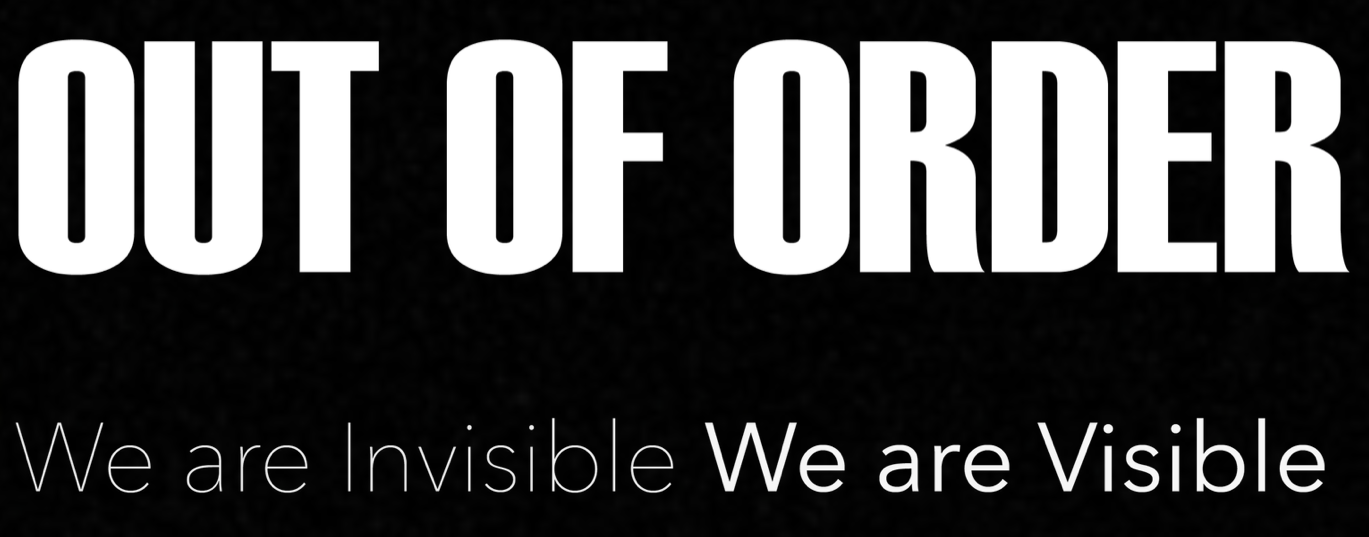OUT OF ORDER
We are Invisible We are Visible
To mark the 102nd anniversary of the 1st Dada International Exhibition in Berlin, 31 d/Deaf, Disabled and Neurodivergent artists will stage Dada inspired interventions in 30 museums and galleries across Britain and Northern Ireland on the same day on 2 July 2022.
The interventions cover a wide range including performative; time based; ephemeral; quirky; unusual; minimal; solo/duo/group; digital and much more. The project asks the question - What if the Dada movement had started in 2020 in lockdown? What would they have done? Is now a timely moment to resurrect the spirit and essence of Dada?
The event with the title We are Invisible We are Visible (WAIWAV) is presented by DASH, the disabled led visual arts organisation, and was awarded the 2021 Ampersand Prize.
The museums and galleries include: Arnolfini, Baltic, Centre for Contemporary Art Derry, Firstsite, Focal Point Gallery, Golden Thread Gallery, Grizedale Arts, Glynn Vivian Art Gallery, Harris Museum and Art Gallery, HOME, The Hepworth Wakefield, Ikon, John Hansard Gallery, Leeds Art Gallery, Liverpool Biennial, Manchester Art Gallery, MIMA, MK Gallery, Modern Art Oxford, Newlyn Art Gallery, Nottingham Contemporary, The Pier Arts Centre, Site Gallery, Tate Britain, Tate Liverpool, Tate Modern, Tate St Ives, Towner Eastbourne, Turner Contemporary and VOID.
The Artists: Stav Meishar; AIM (Art In Motion); Tony Heaton /Terry Smith; Bel Pye; Kristina Veasey; Chris Tally Evans; Porcelain Delaney; Nicola Woodham; Grace Currie; Alice Quarterman; Dora Colquhoun; April Lin; Lisette Auton; Caroline Cardus; Jenette Coldrick; Ashokkumar Mistry; Cheryl Beer; Sonia Boué; Christina Lovey; Alex Billingham; Luke ‘Luca’ Cockayne; Andrea Mindel; gobscure; Jo Munton/Stephanie Finegan; Mianam Bashir/Emma Powell; Aaron Williamson; Sam Metz; Hayley Hindle; Anahita Harding; Chisato Minamimura; Alistair Gentry.
Mike Layward, DASH’s Artistic Director said: “To be awarded the Ampersand award for this surreal intervention will not only have a massive impact on Disability arts but will show that the visual arts institutions are now open and willing to change. DASH has a long history of producing provocative interventions that continue the legacy of Dada, Absurdism and Surrealism into the 21st century.”
The WAIWAV selection panel: Lois Keidan: ex-Live Art Development agency director; Ryan Hughes: Director of Coventry Biennial; Linzi Stauvers: Head of Learning at Ikon; Ashokkumar Mistry: Disabled Curator/artist; Aidan Moesby: Disabled curator/artist; Heather Sturdy: Head of National Partnerships at Tate; Ceri Barrow: Plus Tate Coordinator and Mike Layward: DASH Artistic Director.
Music specially commissioned by John Woolrich
Live music played on the flute by Lelia Marshall
In response to the project We are Invisible We are Visible the artist and activist Tony Heaton invited Terry Smith to brainstorm some ideas around the theme. Out of Order emerged out of these discussions.
An intervention by Tony Heaton & Terry Smith
OUT OF ORDER shines a spotlight on break-down, barriers and dysfunction.
We chose the BALTIC because we really love this gallery, we like the position of the lifts, highly visible, but…
They are inadequate in number and they are unreliable, they break down too often. This is not unusual to the BALTIC, they are brave enough to acknowledge it but it happens in very many public art galleries and other public-facing buildings all the time, we could have chosen many other buildings. It’s an issue that does not get recorded or raised, we think because it mainly only has a negative effect on those with the quietest voices and the least power. Disabled people.
Many disabled people and all wheelchair-users rely on Lifts to access public buildings like publicly-funded art galleries such as the BALTIC.
Non-disabled people never have to think about or worry if lifts are out of order, being serviced or even being full, they can use their freedom of choice to take the stairs. Disabled people can’t and rely on lifts being sufficient in number and in full working order… BUT, often this is not the case, lifts are very often out-of-order, this is stressful and more than inconvenient for disabled people who want to enjoy the experiences everyone else takes for granted.
There are around 15 million Disabled People in the UK, around 20% of the population.
Many children, families with prams and buggies and elderly people rely on lifts for easy access who add to these numbers, it’s a big issue.
So why is it that architects routinely fail to provide adequate lifts into public buildings?
Why do public-funders give tax-payers money to schemes that do not give adequate access?
When it’s obvious that lifts break down, need servicing and have a limited life-span do public facing buildings like the BALTIC have to put up with old, out-dated and frequently out-of-order lifts which inconvenience many?
Why are lifts commissioned from makers who are thousands of miles away and it takes months for many of the spare parts to arrive, a cheap install but an expensive on-going problem in the long-term, a false economy that many commissioners don’t realise at the time of construction but will come back to haunt them once they are in service.
It might be the lifts that are ‘out of order’ but really, it’s the attitudes of those in power that fail to provide adequate provision who are really ‘out of order’ – this intervention is a provocation to all of those visionless architects, cowardly planners, indiscriminate funders, inept decision-makers, those with power and rank, they are out of order and we are dedicating this work to them…


